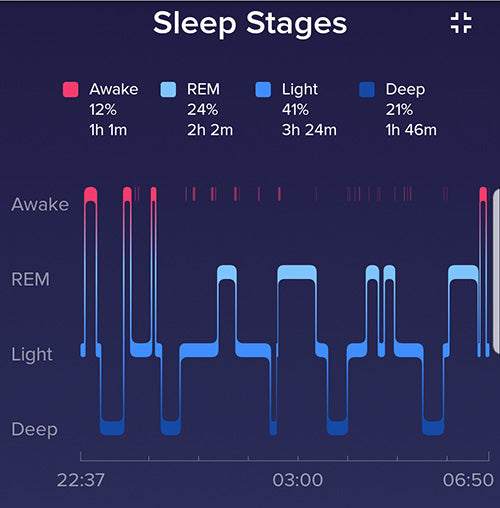7 herbs and supplements to manage mood disorders

In the blog titled “Mood disorders: Common causes and symptoms” we discussed common mood disorders, their causes, symptoms and management options. Even the best available medical treatments don't work for everyone. Roughly four in ten Americans use herbal supplements and other types of complementary or alternative medicines.
Research has shown promise for some supplements in treating mild-to-moderate mood disorders. This blog discusses 7 common herbs and supplements which have shown potential in managing mood disorders.
1. St. John’s wort
St. John’s wort or Hypericum perforatum is a wild-growing plant with yellow flowers and is one of the most widely used natural supplement in the world. This plant has been a common herbal mental health treatment for hundreds of years. It is most commonly used for "the blues" or depression and symptoms that sometimes go along with mood such as nervousness, tiredness, poor appetite, and trouble sleeping. There is some strong scientific evidence that it is effective for mild to moderate depression. A 2016 systematic review found that St. John’s wort was more effective than a placebo for treating mild to moderate depression and worked almost as well as antidepressant medications.[1]
For a long time, scientists thought a chemical in St. John's wort called hypericin was responsible for its effects on improving mood. More recent information suggests other chemicals like hyperforin may play a larger role. These chemicals act on messengers in the nervous system that regulate mood.
2. 5-HTP
5-HTP is a naturally occurring amino acid and is also produced commercially from the seeds of an African plant known as Griffonia simplicifolia. 5-HTP is a compound which gets converted into serotonin in the brain. Serotonin is one of the principal neurotransmitters involved in happiness and anti-depression. Recent research has found the use of 5-HTP in mood disorders is beneficial. A 2002 review concluded that the data suggests that 5-HTP is more effective than placebo in the treatment of depression.[4]
3. L-Theanine
Theanine is an analogue of amino acid glutamate and is particularly found in green tea. As a structural analog of glutamate, the theanine is absorbed in the small intestine after oral ingestion. It can also cross the blood–brain barrier intact and elevates levels of GABA, serotonin and dopamine which regulate emotions and mood in our brain and has been studied for its potential ability to reduce symptoms of anxiety and depression.[2]
4. Ginseng
Ginseng is the root of plants in the genus Panax, such as Korean ginseng (P. ginseng), South China ginseng (P. notoginseng), and American ginseng (P. quinquefolius), typically characterized by the presence of ginsenosides. Ginseng is traditionally used as a medicinal herb in Korea, Japan, China, and the United States. The reason for this long-established usage is that ginseng contains natural antioxidant compounds. These ginsenosides, which are extracted from the ginseng roots, leaves, stems, and fruit, have multiple pharmacological effects. [7]
Ginseng effectively suppresses stress by acting on the HPA axis, which is a major cause of depression.
5. Vitamin B
Vitamin B-12 and other B vitamins play a role in producing brain chemicals like serotonin that affect mood and other brain functions. Low levels of B-12 and other B vitamins such as vitamin B-6 and folate may be linked to depression. Low levels of a vitamin can result from eating a poor diet or not being able to absorb the vitamins you consume. Older adults, vegetarians and people with digestive disorders may have trouble getting enough B-12.
Study results have been mixed and questionable on whether vitamin B-12 supplements can help reduce the risk of depression. The best way to make sure you're getting enough B-12 and other vitamins is to eat a healthy diet that includes sources of essential nutrients.[6]
6. S-Adenosyl methionine
SAMe is a naturally occurring molecule in bacteria, plants, and animals and plays many important roles at the level of genes, immune function, and amino acid metabolism. In humans, SAMe is an important methyl donor, an essential step in the synthesis of several neurotransmitters from amino acids in the diet. The antidepressant effects of SAMe are probably related to multiple mechanisms of action including increased brain levels of serotonin, dopamine, and norepinephrine. The synthesis of these neurotransmitters by SAMe requires vitamin B12 and folate.[5]
SAMe should not be used with a prescription antidepressant — the combination may lead to serious side effects. SAMe may trigger mania in people with bipolar disorder.
7. GABA
Gamma aminobutyric acid (GABA) is a naturally occurring amino acid that works as a chemical messenger in the brain. GABA blocks certain brain signals and decreases activity in the nervous system. By inhibiting neural activity, GABA facilitates sleep, reduces mental and physical stress, lowers anxiety, and creates a calmness of mood. In combination with glutamate, the body’s most important excitatory neurotransmitter, GABA is an important contributor to the body’s overall mental and physical homeostasis, or balance.[3]
The bottom line is that mood disorders are treatable, but an individual may need to try a few different options when working out which treatment is most effective. Herbal and natural supplements may work well for some people however, herbal does not always mean safe or effective, and knowing which products to choose can save a lot of time and money.
Refine Naturals™ Mood product’s unique multiple ingredient formula promotes a healthy mood balance. At Refine Naturals™, we realize that not all natural health supplements are created equal. We have concentrated our expertise in choosing quality and evidence based medicinal as well as non-medicinal ingredients. We keep our labels and marketing practices compliant to advertising standards, so as to never mislead consumers in their decision making.
At Refine Naturals™, we believe “You Deserve Better than FINE!”
References:
- Apaydin, E. A., Maher, A. R., Shanman, R., Booth, M. S., Miles, J. N., Sorbero, M. E., & Hempel, S. (2016). A systematic review of St. John's wort for major depressive disorder. Systematic reviews, 5(1), 148. https://doi.org/10.1186/s13643-016-0325-2
- Dietz C, Dekker M. Effect of Green Tea Phytochemicals on Mood and Cognition. Curr Pharm Des. 2017;23(19):2876.
- Boonstra E, de Kleijn R, Colzato LS, Alkemade A, Forstmann BU, Nieuwenhuis S. Neurotransmitters as food supplements: the effects of GABA on brain and behavior. Front Psychol. 2015;6:1520. Published 2015 Oct 6.doi:10.3389/fpsyg.2015.01520
- Birdsall TC. 5-Hydroxytryptophan: a clinically-effective serotonin precursor. Altern Med Rev. 1998;3(4):271-280.
- Galizia, I., Oldani, L., Macritchie, K., Amari, E., Dougall, D., Jones, T. N., Lam, R. W., Massei, G. J., Yatham, L. N., & Young, A. H. (2016). S-adenosyl methionine (SAMe) for depression in adults. The Cochrane database of systematic reviews, 10(10), CD011286. https://doi.org/10.1002/14651858.CD011286.pub2
- Young, L. M., Pipingas, A., White, D. J., Gauci, S., & Scholey, A. (2019). A Systematic Review and Meta-Analysis of B Vitamin Supplementation on Depressive Symptoms, Anxiety, and Stress: Effects on Healthy and 'At-Risk' Individuals. Nutrients, 11(9), 2232. https://doi.org/10.3390/nu11092232
- Jin, Y., Cui, R., Zhao, L., Fan, J., & Li, B. (2019). Mechanisms of Panax ginseng action as an antidepressant. Cell proliferation, 52(6), e12696. https://doi.org/10.1111/cpr.12696




